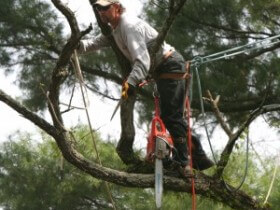Organic horticulture can be an every day part of your life, but understanding how it works can be hard. There are a variety of organic seeds available. Keep reading for insight on what is best suited for the garden of your dreams.
Clay is difficult to dig through with a shovel, as it is sticky and compact. One way to get around this problem is to coat the shovel with wax. Use a clean cloth to spread the wax evenly. This will keep the soil from sticking, and prevent rusting of the tool.
Get a slug-proof variety of perennials. Slugs and snails will quickly destroy your garden if you let them. These pests are particularly fond of young perennials and those varieties with leaves that are tender, smooth, and thin. There are perennials that slugs do not want to eat, the ones that they hate have hairy leaves, or are unappealing to their taste. Some perennial families that snails and slugs won’t eat include achillea, campanula, and helleborus.
Use both annuals and biennials to add a splash of color to your flower beds. These fast growing flowers let you change how your flower bed looks season to season. They are useful for filling gaps in between shrubs and perennials in sunny areas. Attention-getting options exist such as sunflowers and petunias.
Ensure you have the proper soil for the plants you have selected. Your soil may not be correct, but it depends on what sorts of plants you want to grow. It can happen where one artificial area is designated to have just one type of soil.
If you would like to have flowers in your garden that last through the spring and summer seasons, plant bulbs. Most bulbs are hardy and require little to no care in order to develop into beautiful perennials that will reappear each and every year. Different bulbs bloom at various times, so choosing appropriately, you may have blooms early spring to later summer.
Fall edibles are a wonderful addition to your garden. Rather than putting standard clay vessels into use when planting crops of lettuce and kale, think about using pumpkins instead. Clean out the pumpkin just like you would if you were making a jack o’lantern. Spray Wilt-Pruf inside the pumpkin and along its edges so that the pumpkin won’t rot. Once you have completed this, start planting!
Don’t cut your grass too short! If you leave more height to your grass, the roots will grow deeper into the soil, making the lawn stronger and more resistant to drying out. When you cut the grass too short, the roots are often not deep enough, which causes your lawn to have dry patches of brown, discolored grass.
Always fertilize your garden. Manure is probably the best fertilizer. Choose a commercial product to reduce the risks of pathogen exposure. There are many fertilizer options available, though in reality, whatever type you choose will do the job as long as you are using something.
Being a novice gardener, you should ensure that you follow the directions carefully for tool and chemical use. If you do not do this very simple step, you can end up causing skin irritation problems that are very painful. Keep yourself safe and always follow instructions.
An organic garden provides many benefits to your health, so understanding the various plants and options you can grow is crucial. The tips you’ve found above are sure to help you get off to a good start on growing chemical-free healthy food.
It can be hard to learn about Austin Tree Removal Service unless you know how to begin. Be sure you have a solid basis of understanding before moving on. Application of the material that you learned is also essential.




